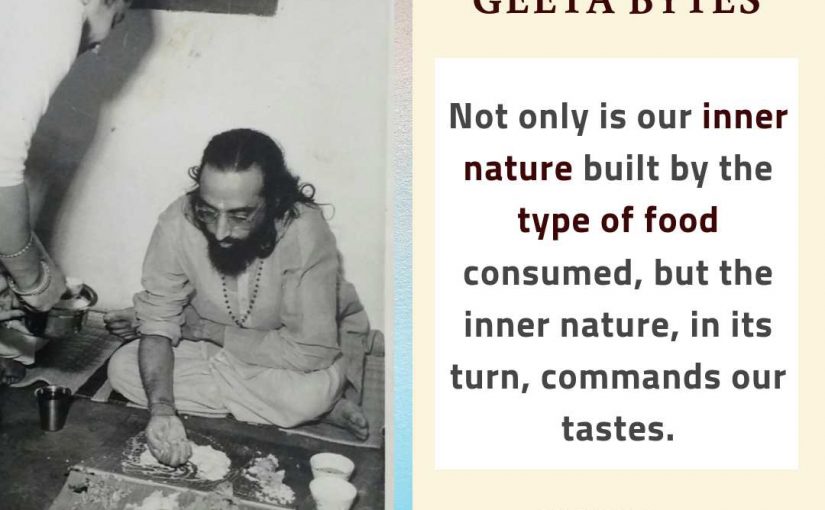No doubt, food has certain effects upon the eater. Generally, an eater is, to some extent, conditioned by the type of diet he eats. Not only is our inner nature built by the type of food consumed, but the inner nature, in its turn, commands our tastes; and we find very often that we have developed an irresistible appetite for certain types of food.
In describing the natural taste for some particular types of food in good men of spiritual urges (sattva), it is said that they like only such diet which increases the vitality (Aayuh), and not sheer bulk; which supplies the energy for meditative purposes (Veerya); which discovers for them a secret strength (Bala) to resist the temptations for the sense-objects; which provide health so that they may not often fall ill and suffer a break in their regular sadhana.
Such people will have a natural inclination to take food which will augment joy (Preeti) and inner cheerfulness (Sukha). In short, such creative men, by their own choice, enjoy only food that is clean and wholesome.
Men of energy, the ‘passionate’, desire such food (Rajasasya ishtaah) that have strong flavour and dense taste. Bitter, sour, saltish, very hot, pungent, harsh, burning tastes are to the liking of all vigorous men, restlessly striving to fulfil their uncontrolled passions and desires (rajasic).
Such a diet, no doubt, creates in an individual brilliant energies, but in their wildness, they are, to a degree, uncontrollable; and therefore, in their final reactions they lead the eater towards a life productive of PAIN, GRIEF AND DISEASE. we have to understand that, when the texture of thought improves, the individual finds himself changing his tastes: even his choice of food which would give him full satisfaction is totally revolutionised.
Food that has been cooked overnight, or that has been kept for days together, foul-smelling and tasteless, is the food liked by the ‘Tamasic’.
